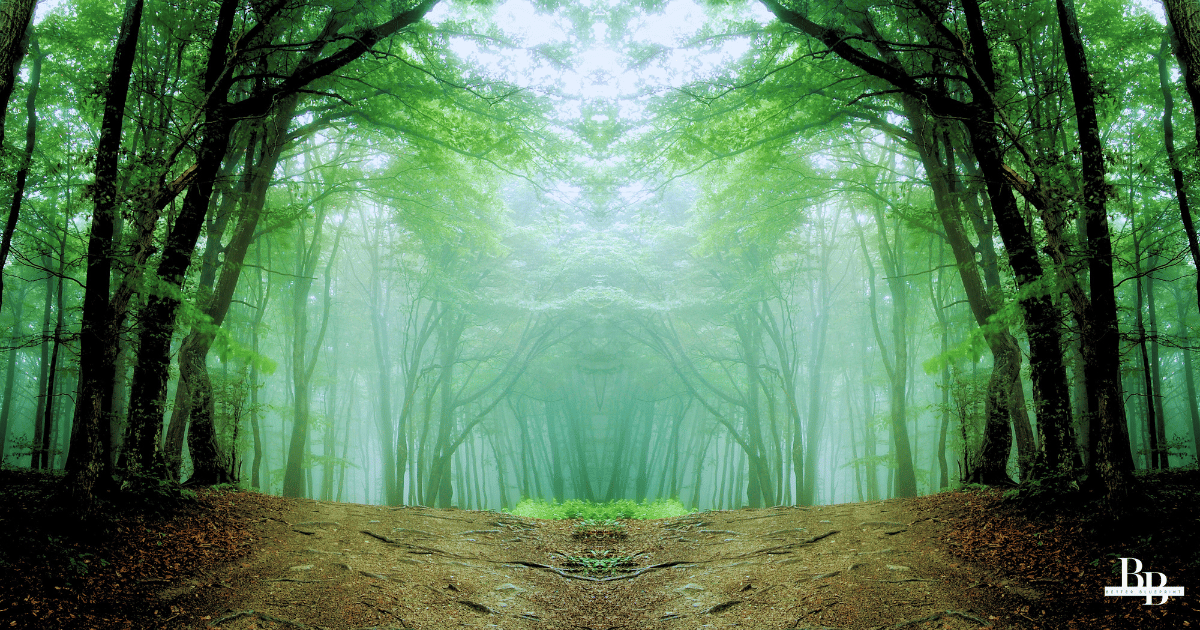- The Better Blueprint
- Posts
- The Better Blueprint
The Better Blueprint
No: 1508

The Seeker Is the Sought
Long ago, all the birds of the world gathered.
They were restless, uncertain, tired of their scattered lives.
And so they chose to go in search of a true king — the Simurgh —
a being so wise, so radiant, that it would make sense of everything.
The hoopoe bird, wise and weathered, agreed to lead the way. But the journey was not light. They would have to cross seven valleys:
of longing, love, knowledge, detachment, unity, bewilderment, and finally, annihilation. Each valley stripped something away. One bird turned back to protect its nest.
Another feared the valley of love. Many could not bear to lose the stories they told themselves.
Only thirty birds reached the end. And there, when the mist cleared,
they found no king waiting.
Only a mirror.
And in that mirror, they saw themselves — not as they had been,
but as they truly were when all illusions had fallen away.
—
That story has stayed with me. Because most of the time, we believe the “king” is somewhere else. A moment of clarity, a person, a title, a destination that will redeem our waiting. But the journey isn’t about arrival. It’s about what falls away as we move.
Each valley we walk through — heartbreak, confusion, success, stillness —
isn’t taking us farther. It’s taking us inward.
And slowly, without fanfare, the mirror reveals itself. Not to glorify us.
But to remind us: what we were seeking had been inside us all along — not in the form of answers, but in the form of emptiness made sacred by surrender.
If you’re in one of those valleys right now — keep going. Don’t rush. Let each step untie a knot inside you.
The Simurgh isn’t at the end of the road. It’s the quiet truth that you are not apart from what you long for. And maybe the ones who reach the end are not the cleverest, not the strongest, but the ones willing to be undone.
A Great Quote
“I want to be with those who know secret things or else alone.
I want to unfold. Let no place in me hold itself closed,
for where I am closed, I am false”
— Rilke, The Book of Hours
Book Review: “The Book of Hours by Rainer Maria Rilke”
Written between 1899 and 1903, this collection is a series of mystical poems — gentle, piercing, and filled with longing for something beyond the reach of ordinary life. It is not a religious book in the traditional sense. It is, instead, a deeply intimate conversation between the self and the divine — a divine not defined by churches or creeds, but found in solitude, shadows, silence, and the breath between thoughts.
Rilke gives us a God that is not separate from us, but nestled quietly within us — and within all things.
“You are the deep innerness of all things,
the last word that can never be spoken.”
These poems were originally written in German and translated into English many times. The best-known English version — by Anita Barrows and Joanna Macy — captures Rilke’s aching stillness and tender urgency. Their translation doesn't just carry over his words; it carries over the silence between them.
What Is the Book About?
The Book of Hours is structured around three parts, each corresponding to a phase in Rilke’s spiritual and poetic journey:
The Book of Monastic Life – A yearning to surrender, to dissolve the ego, to find God not in separation but in intimacy.
The Book of Pilgrimage – A sense of spiritual wandering, restlessness, and distance. Longing is more pronounced here.
The Book of Poverty and Death – A deep acceptance of impermanence. There’s peace in facing death, simplicity, and not having answers.
Rather than telling a story, the book unfolds like a journey inward. Each poem is a stop, a moment of breathing beside the soul’s long ache to be near God — not in heaven, but here.
Why It Still Matters
What makes The Book of Hours feel timeless is how well it speaks to those of us living in modern disquiet.
Rilke writes not from certainty but from hunger. He names the silence. He names the space between knowing and believing.
In an age where spiritual language often comes wrapped in certainty or performance, Rilke offers something more human — a divine intimacy rooted in doubt, longing, and slow inner unfolding.
“I want to unfold.
Let no place in me hold itself closed.
For where I am closed, I am false.”
Who Should Read This?
Seekers who no longer find God in inherited language
Artists, writers, and poets drawn to the sacred within the ordinary
Anyone who needs a slow, quiet companion through grief, solitude, or inner search
This is not a book to rush through. It’s one to leave by your bedside or carry into a forest. A book to open when you don’t know what to pray — but feel like praying anyway.
P.S.: If this brought you calm, pass it on to someone who’d enjoy the silence too.
About : Welcome to our fortnightly journey—a space for reflection, growth, and quiet discovery. Each edition brings two deep dives into personal transformation, a handpicked quote to stir the soul and a review of a book that reshapes perspectives.